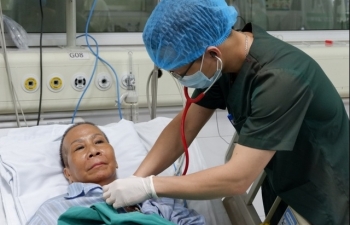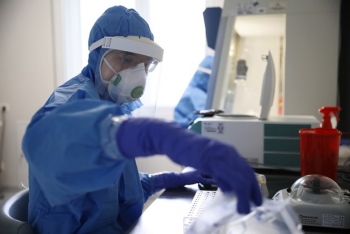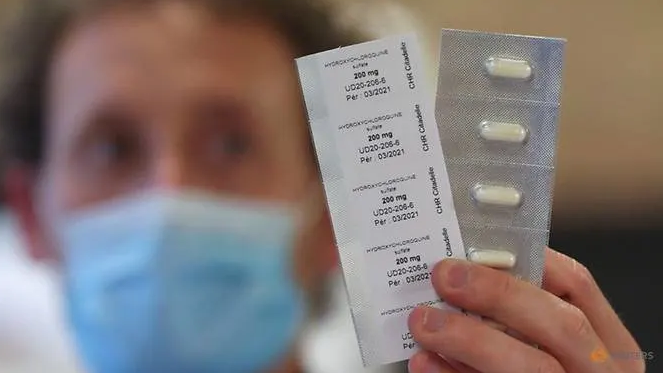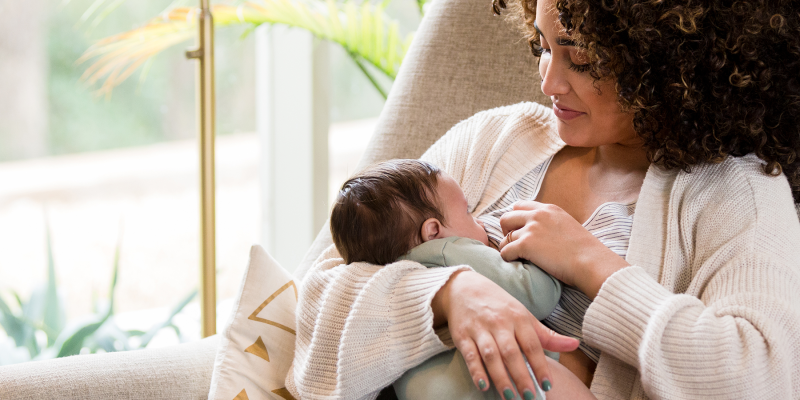Coronavirus update: Covid-19 detected in breast milk, annouced German researchers
According to the discovery published in The Lancet journal on May 21, a group of researchers tested two women, who had given birth to babies, using reverse transcription polymerase chain reaction procedure. "We examined milk from two nursing mothers infected with SARS-CoV-2. Both mothers were informed about the study and gave informed consent", announced the Lancet.
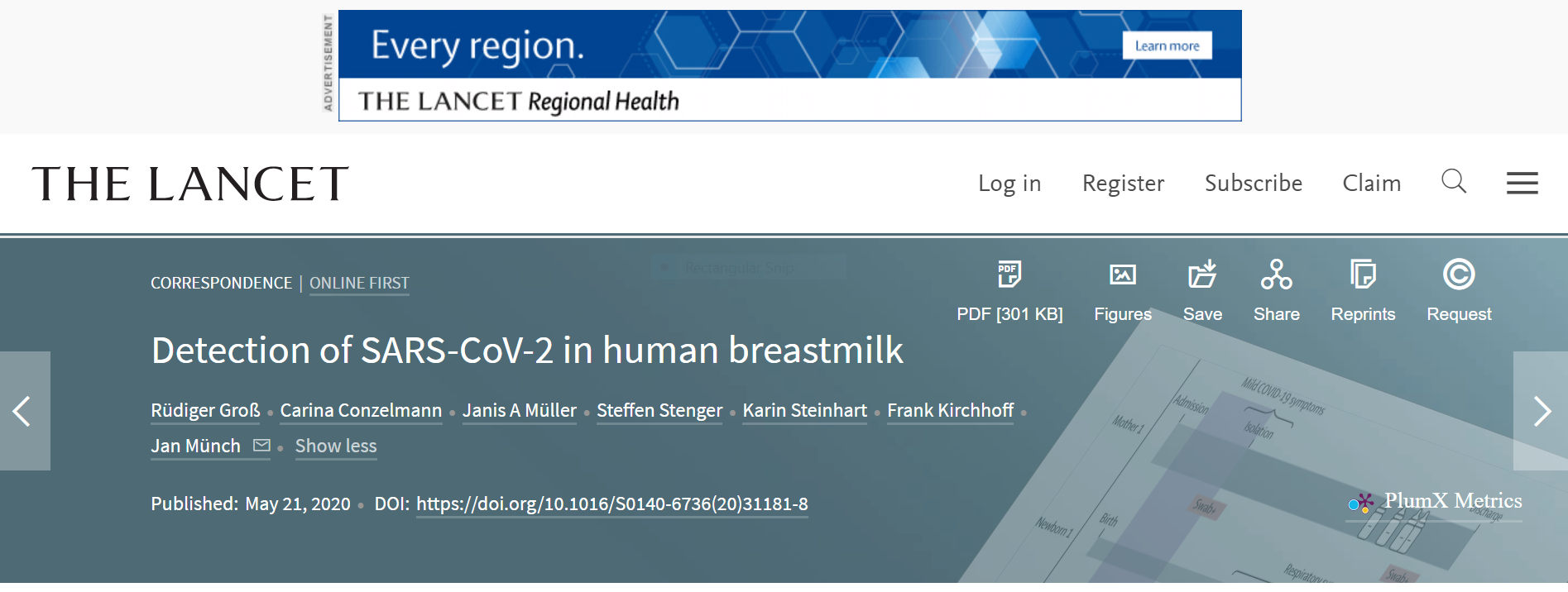 |
| German researchers have found Covid-19 in human milk. Photo: Screenshot of Lancet |
The virus was found in one mother on the ninth day of her infection. For the mother 2, "we detected SARS-CoV-2 RNA in milk samples for 4 consecutive days", said the researchers.
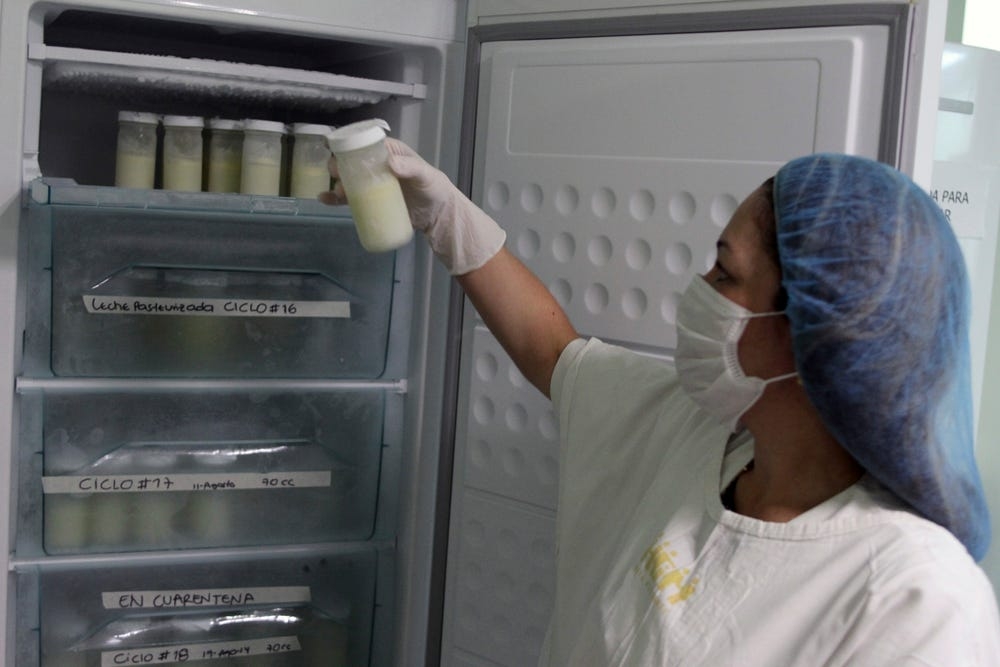 |
| A nurse examines bottles of breast milk kept in a fridge. Photo: Reuters |
The Nation revealed that around 94,800 to 132,000 viruses exist in each cubic centimetre of breast milk, and found this mother’s infant infected by the virus as well. However, the researchers could not conclude whether the infant had contracted Covid-19 from its mother or from other sources.
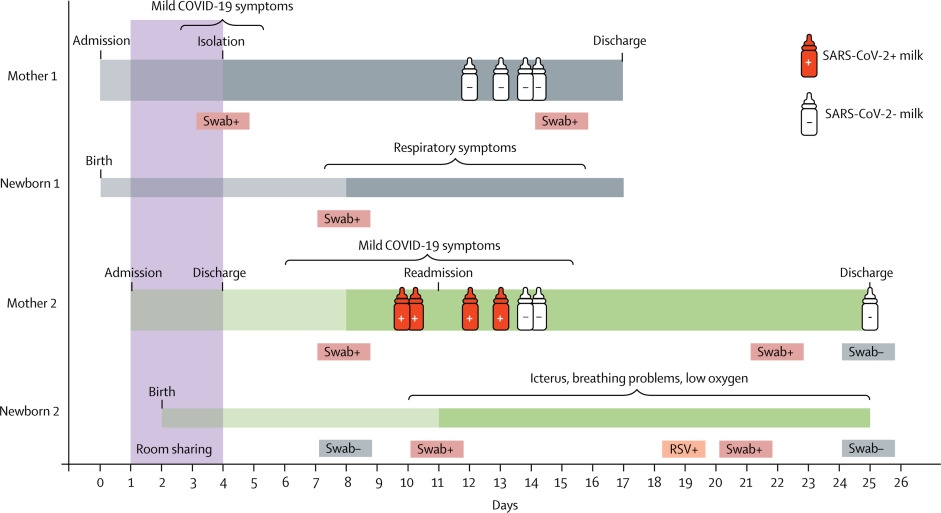 |
| Timecourse of SARS-CoV-2 infection of two mothers with newborn children. Photo: Lancet |
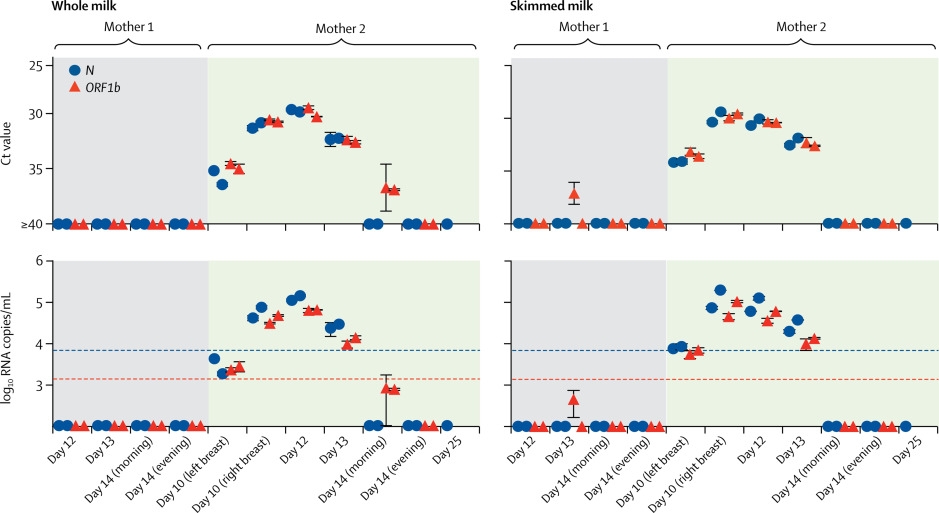 |
| Detection of SARS-CoV-2 in breastmilk from an infected mother. Photo: Lancet |
According to The Nation, this research would lead to proper ways to treat those who are pregnant or had given birth to babies.
Another study published recently in the Journal of Clinical Microbiology Breast suggested that, milk from infected mothers may contain antibodies to the novel coronavirus that could be protective for babies. "Nursing mothers who are infected with the novel coronavirus should continue to breastfeed throughout their COVID-19 illness and beyond, because (other researchers) have shown transmission does not occur via milk, and we have determined that antibodies are almost certainly there, and may protect their babies from infection," Rebecca Powell of The Icahn School of Medicine at Mount Sinai in New York, who led the study, told Reuters.
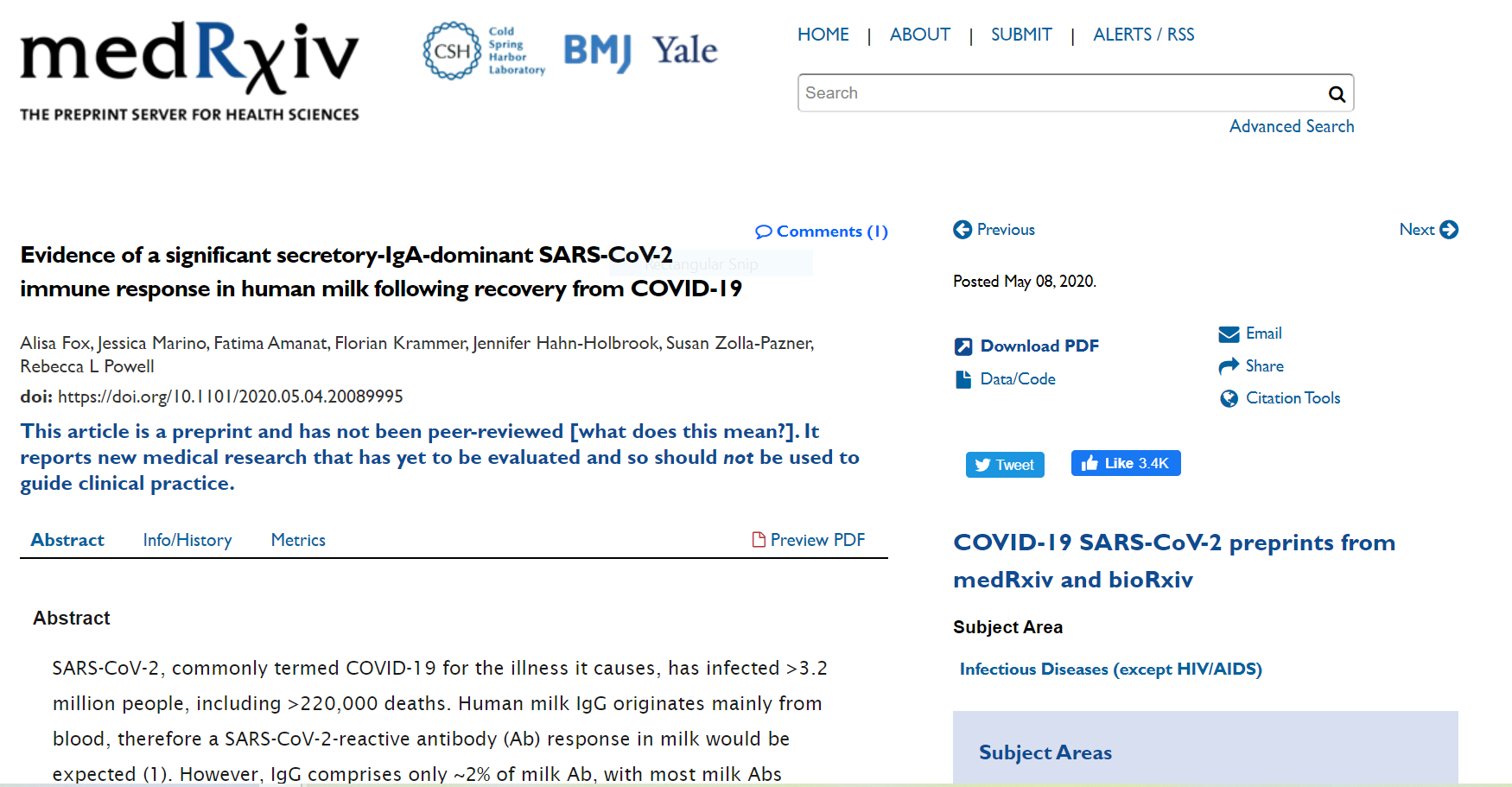 |
| Evidence shows that milk from infected mothers may contain antibodies to the novel coronavirus that could be protective for babies. Photo: Screenshot of Medrxiv |
| Notwithstanding breastmilk is the best source of nutrition for babies and protects them against illness, mothers will be understandably worried and asking themselves whether coronavirus can be passed on through breastmilk and what they can do to protect themselves and their babies. Here are some tips from UNICEF for keeping mothers and babies safe during the COVID-19 crisis: 1. Continue to breastfeed while taking care with hygiene Mothers are advised to continue breastfeeding, while practicing good hygiene during feeding with the 3 Ws: Wear a mask during feeding, Wash hands with soap before and after touching the baby, Wipe and disinfect surfaces regularly. The main risk for a baby is catching the virus from close contact with the mother or another infected member of the family. If anyone is sick in the household, take extra care to protect your baby by practising the 3 Ws. Some mothers may choose to wear a mask during feeding as a routine to ensure that their child is fully protected. If a mother suspects that she may have contracted coronavirus, she may wish to express her breastmilk and feed the baby using a clean cup or cup and spoon. 2. Take additional hygiene measures and continue to breastfeed if you fall sick Mothers who get coronavirus shortly before giving birth and begin breastfeeding, and those who become infected while breastfeeding, will produce immune factors (antibodies) in their milk to protect their baby and enhance the baby’s own immune responses. This means that continuing to breastfeed is the best way to fight the virus and protect your baby. If a mother does fall ill with symptoms of fever, cough or difficulty breathing, she should seek medical care early, and follow instructions from a health care provider. Mothers who are well enough to breastfeed should continue to do so, taking additional care with hygiene by practicing the 3 Ws including wearing a mask whenever near to the baby. 3. Use a cup and spoon to feed babies with expressed breastmilk when too sick to breastfeed When mothers are too ill to breastfeed, they should seek immediate medical advice. It may still be possible to express milk and ask a non-infected member of the family to feed the baby using a clean cup or cup and spoon. It will be even more important to follow the 3 Ws at all times to keep the baby healthy and safe. 4. Take extra care when formula feeding Breastfeeding is the best way of providing ideal food for the healthy growth and development of babies. However, there are instances where a mother is unable to breastfeed or where she has decided not to breastfeed. In addition, the widespread marketing of formula milks undermines the confidence of many mothers and encourages them to feed their babies using bottles and formula milks. In these cases, it is especially important that babies are being fed according to the instructions on the packaging and that extra care is taken with thoroughly washing bottles, teats and any other equipment used. The 3 Ws should be followed at all times. (Source: UNICEF)
|
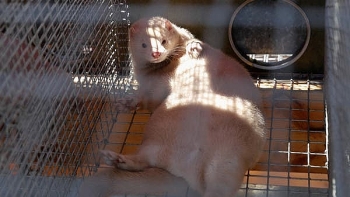 | Mink transmitted COVID-19 to two humans in the Netherlands Mink with the coronavirus have infected two people in the Netherlands, reported Reuters citing government and health authorities on May 25. |
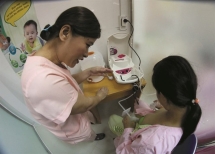 | Vietnam’s first breast milk bank reports initial success The Breast Milk Bank under the Da Nang Hospital for Women and Children, the first of its kind in Vietnam, received 140 litres of milk ... |
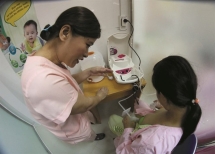 | Doctors warn mothers of donated breast milk use Vietnamese women who are unable to breast-feed their children for health reasons are increasingly using donated breast milk from other women, sparking warnings from physicians. |
Recommended
 World
World
Pakistan NCRC report explores emerging child rights issues
 World
World
"India has right to defend herself against terror," says German Foreign Minister, endorses Op Sindoor
 World
World
‘We stand with India’: Japan, UAE back New Delhi over its global outreach against terror
 World
World
'Action Was Entirely Justifiable': Former US NSA John Bolton Backs India's Right After Pahalgam Attack
 World
World
US, China Conclude Trade Talks with Positive Outcome
 World
World
Nifty, Sensex jumped more than 2% in opening as India-Pakistan tensions ease
 World
World
Easing of US-China Tariffs: Markets React Positively, Experts Remain Cautious
 World
World

